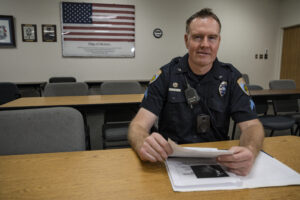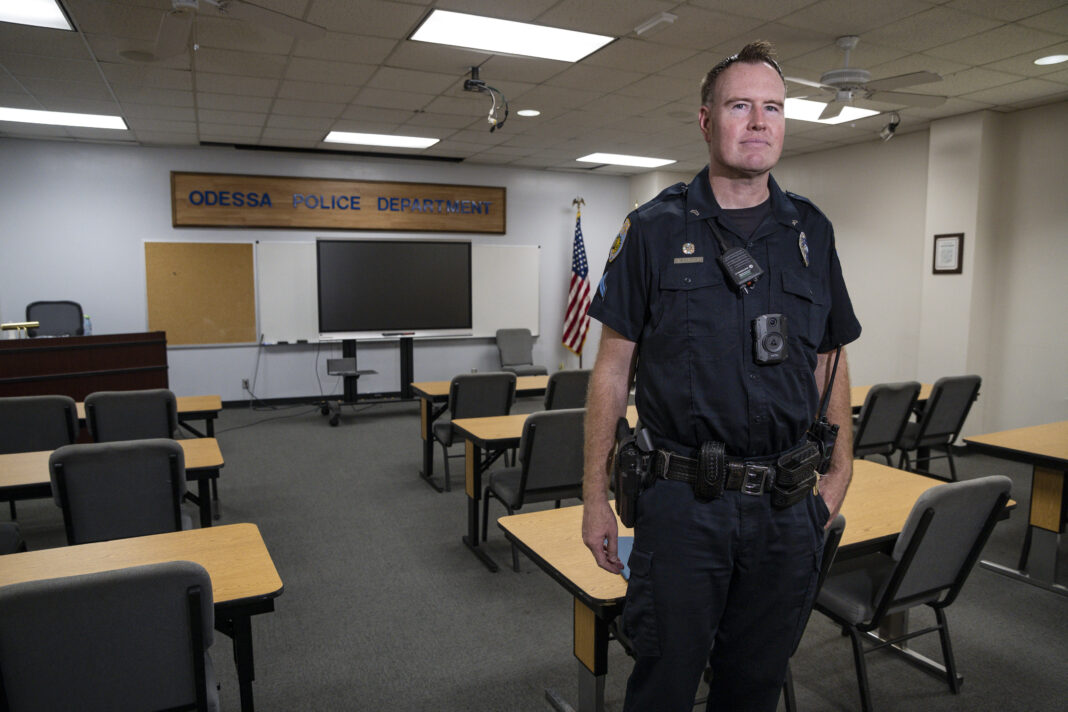It’s a scenario nobody likes to think about: What do you do if a violent person armed with a gun or other weapon shows up at your church, school or business?
But knowing how to prevent, or respond correctly could save many people’s lives.
That’s the goal of Odessa Police Department’s free public training program called C.R.A.S.E., or Civilian Response to Active Shooter Events.
“It’s a great program,” said Corporal Steve LeSueur, who oversees the Odessa program. “It gives people a lot of options designed to provide strategies to survive active shooter events.”
The police department has offered the training workshops for several years, but the demand and interest increased following a horrific mass shooting that occurred in Odessa 2 years ago, acknowledged LeSueur.
“For the past 2 decades these kinds of incidents have really picked up,” LeSueur said. “But it really hit home 2 years ago. These events don’t just happen in big cities.”
The free training is available to any group, especially schools, churches, hospitals and businesses where such violent incidents are more apt to occur. The police department also offers a free, comprehensive security assessment of a facility’s ability to prevent and respond to such emergency situations.

The services are available by request and can be scheduled by contacting the police community relations department at (432) 335-3322, LeSueur said.
“It’s a great community service,” said Madu Medi, office manager for Odessa’s Permian Psychiatry. The psychiatry office received the training and security assessment 2 weeks ago.
“They spent 3-4 hours putting together a (security evaluation) report for us,” Madu Medi said. “They looked at everything including where are security cameras were located, how well are exit signs were identified; even what kind of doorknobs we have on our doors. I would recommend these programs to every business.”
Madu’s husband, Ravi Medi, opened the psychiatry clinic 29 years ago.
The clinic has always provided in-house training for staff on how to recognize potential security risks and know how to respond appropriately, Madu Medi said. But the police workshop was helpful because it also covered such things as current gun laws and outside community services available.
Clinic staff interacts with many patients that are dealing with a variety of issues, including depression, anxiety, paranoia and anger.
“We’ve counseled a lot of patients who were involved in the mass shooting 2 years ago,” Madu Medi said. “We’re still treating many of them. A lot of the children are still suffering from anxiety.”
LeSueur is one of 5 officers who have been trained and certified to provide the C.R.A.S.E. training and security assessments.
Many times, training participants are seeking specific answers such as if there is an active shooter, should people flee, try hide or attempt to subdue the attacker, LeSueur said. Because each incident is different, there isn’t one correct answer.
Instead, trainers try to review options and different scenarios to help participating groups develop their own strategies.
“Each establishment needs to tailor their plans to their own individual needs,” LeSueur said. “It’s good to be prepared.”




